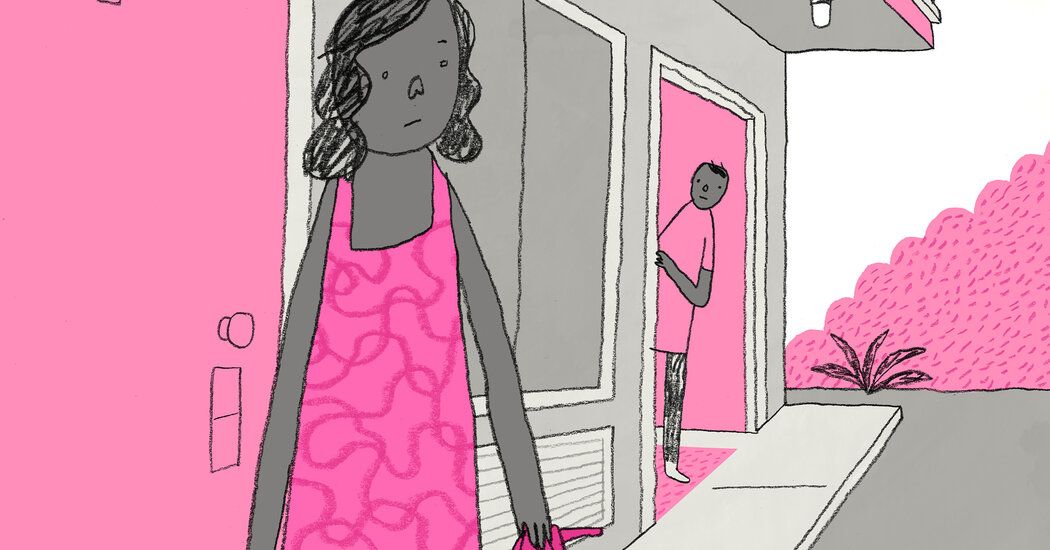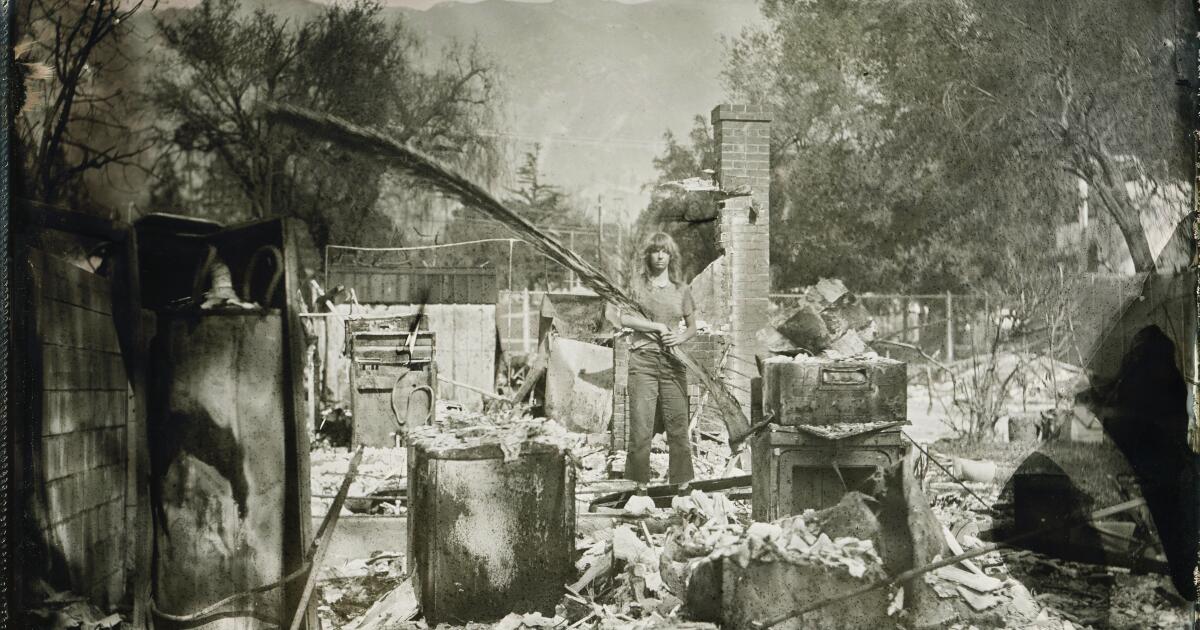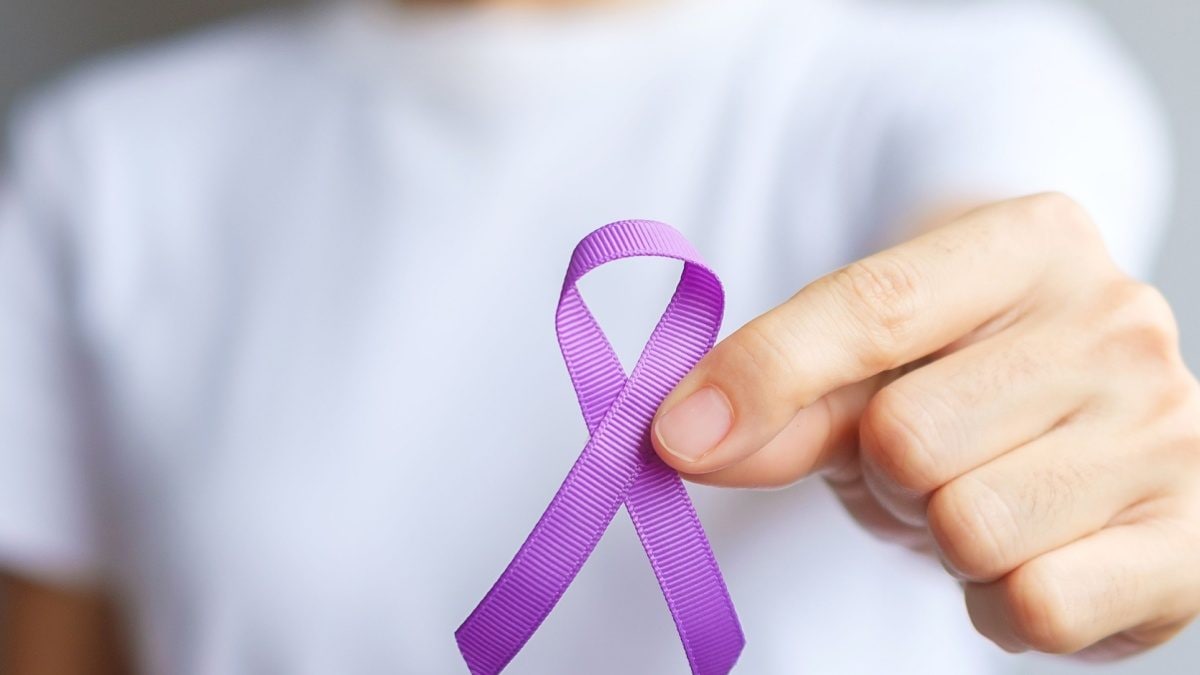My exact words to him on our first date were: “I'm not looking to integrate anyone into my life. “I'm looking to escape from my life.”
We met in an Italian restaurant on a warm August night, on the second anniversary of my husband's death. We had connected on a dating app, which featured his witty, cerebral messages, as well as his profile photo of him reading a New Yorker magazine on a couch bathed in sunlight.
That same day I had gone on a hike with my children to a nearby park, where my daughter found a bag of treasures that someone had hidden on the trail for them to discover. Among the stickers, origami, seed packets and paints was a flat stone with the words “Follow your dreams” painted in rainbow colors.
How timely, I thought. She had only recently begun to believe in signs from a benevolent universe. Those treasures, the meaning of the anniversary, and my first date with this new man seemed to coincide somehow.
For our dinner, I wore one of my favorite bodycon dresses and painted my lips red. I felt good in something other than my mom uniform with leggings and unwashed hair. Later he would tell me that that night, when he saw me in front of him, he was left breathless.
He was a primary care doctor, recently divorced after a long marriage. His son was a freshman in college and his teenage daughter was living with him in a new bachelor pad. He had a mischievous and melancholic smile in equal parts and a masculine voice full of nuances and humor. It calmed me to be in his presence.
I recognized in him a companion with a restless soul; There was something dreamy in his way of speaking. The details of his disillusionment were different, but life had tempered his ideals in a similar way, and he too was in love with escapism.
As we got up to leave the restaurant, his hip hit the table and a glass fell and broke on the floor. I froze, but he didn't flinch. He smiled and apologized to the waiter as we headed out, competent and calm. I imagined it like that with his patients. His confidence impressed me.
He walked me to my car and his lips touched mine as we said goodbye. I would later say that I was the one who kissed him first. “Your car has a Georgina face,” he told me with a smile. His was a pragmatism woven with imagination.
He texted me before he got home to ask me to meet again.
For our second date, he planned a picnic at Portland's Mount Tabor Park. He sent me a map in advance with an indication of where to park. Later, I realized that almost everything I did was premeditated, carefully planned to ensure smooth development. Even in spontaneity, he did not leave things to chance.
We went up the path to the reservoir. He had packed wine, frying pan, olives, cheese and fig spreads in metal cans. I had only brought chocolates, which melted in my bag before we could eat them. We sat on a staircase surrounded by young couples as the sun set.
He told me the story of an almost 80-year-old patient of his with terminal cancer who chose a dignified death. The man organized a party, invited all his loved ones and then lay down to die in the guest bedroom.
My eyes clouded with tears, which I hid by drinking another sip of wine.
This was before he knew how dead my husband was, who also chose his own death, ending his life on a similar summer day, and it took us all completely by surprise. In one irrevocable moment, the life I knew was turned upside down, leaving me alone as the mother of a baby and a toddler.
Two years later, I was timidly venturing back into the dating world. I still couldn't imagine the daily rhythms of life with another person, but I longed for companionship and desire. I wanted to soak in the beauty of the world and remember that I was alive, even though the life I once knew was over.
The sun slid over the horizon as I thought about death and the decision to live.
Shortly after, we began meeting on Sunday nights at various downtown hotels. With my children at home with au pair and his teenage daughter in their rented apartment, we had nowhere private to go. The idea of our meeting sustained me during my long, busy days. It was the only time reserved for me alone, and I fantasized about it all week.
With him I could forget that I was a single mother over 40 years old, with an endless list of things to do and limited time. It freed me from the constant reminder that she had lost my husband to suicide. One night a week, usually after my kids went to bed, I could forget about the piles of laundry, the administrative tasks of being a psychotherapist in private practice, and, perhaps most importantly, I could get away from the ever-present pain.
We went skydiving and frequented flotation tanks, saunas, and dimly lit lounges. We smoked joints, drank martinis with honey and fruity garnishes, and made Spotify playlists for our overnight stays in hotels. We were trying to outdo each other in possible future adventures. She read fiction stories from the New Yorker aloud to me on her couch while her daughter was at school, while the light streamed in through the floor-to-ceiling glass windows. We talked about possible threesomes, dance classes, and psilocybin.
It was as if a blindfold had been removed from my eyes: I saw myself accurately again.
Possibility re-entered my life for the first time since my husband's death. I felt playful, hopeful, in touch with the libido of life. I signed up for piano lessons, started pole dancing, and bought a paddle surf board. All the life experiences that I hadn't had and that I had been too shy to explore now felt at my fingertips.
When we were together, time passed differently; It seemed like an alternate reality. However, he never got enough sleep in hotel beds, rarely ate anything full, and often drank too much wine. The next few days were a mixture of lack of sleep and eagerness to see him again.
I thought about a client who once told me, “At this point in my life, I just want to be with someone I can sleep well with.”
After our adventures, I didn't rest well.
“I don't see myself becoming a father of young children again,” he told me when we had been dating for four months. I had avoided that topic and any mention of the future, knowing that I was not prepared to face the consequences of talking about it.
That's when I knew: I no longer wanted pure escapism. He was prepared for the potential. He could offer me romance, but not the ordinary beauty of everyday life. We weren't going to grow.
There wouldn't be a world where we would watch Disney+ together on the couch. He would never take my children out of the bathroom, with their red cheeks and licked hair. He wouldn't wake me up next to him on a normal work day, dressed in simple clothes, unadorned by night magic.
Even sexy places, tight dresses and high heels lose their appeal. I was craving kale salads, sobriety, and a good night's sleep. As much as I loved our adventures, the indulgence had become unbalanced without the counterbalance of simple pleasures.
I was ready for someone who could one day love my children. That he would like to make pancakes with us on Sunday mornings and hold hands in the park. He had entered a new chapter.
We continued for another month, but the spell had been broken.
The last time I saw him was the first day of the new year. We drove two hours north of Portland, to Astoria, and spent the night in a hotel by the mouth of the river. Sea lions swam outside our window. I had brought binoculars, snacks, and dozens of candles that projected small flames against the glass between us and the darkness of the Columbia River.
The next morning when I woke up, I felt our goodbye in the air between us. On the way home, we stopped at the beach, where we took a walk holding hands and then snuggled up while feeling the cool January breeze. It was a tender and conclusive feeling.
When we were about to arrive at my house, he said, “I wish we could continue as we were, but I would feel selfish knowing that you want something different. “I want you to find the love you are looking for.”
I thanked him and wished him love.
If you are having suicidal thoughts, call or text 988 to contact the National Suicide Prevention Lifeline or visit. SpeakingOfSuicide.com/resources for a list of additional resources.
Dacia Fusaro is a psychotherapist in Portland, Oregon.












